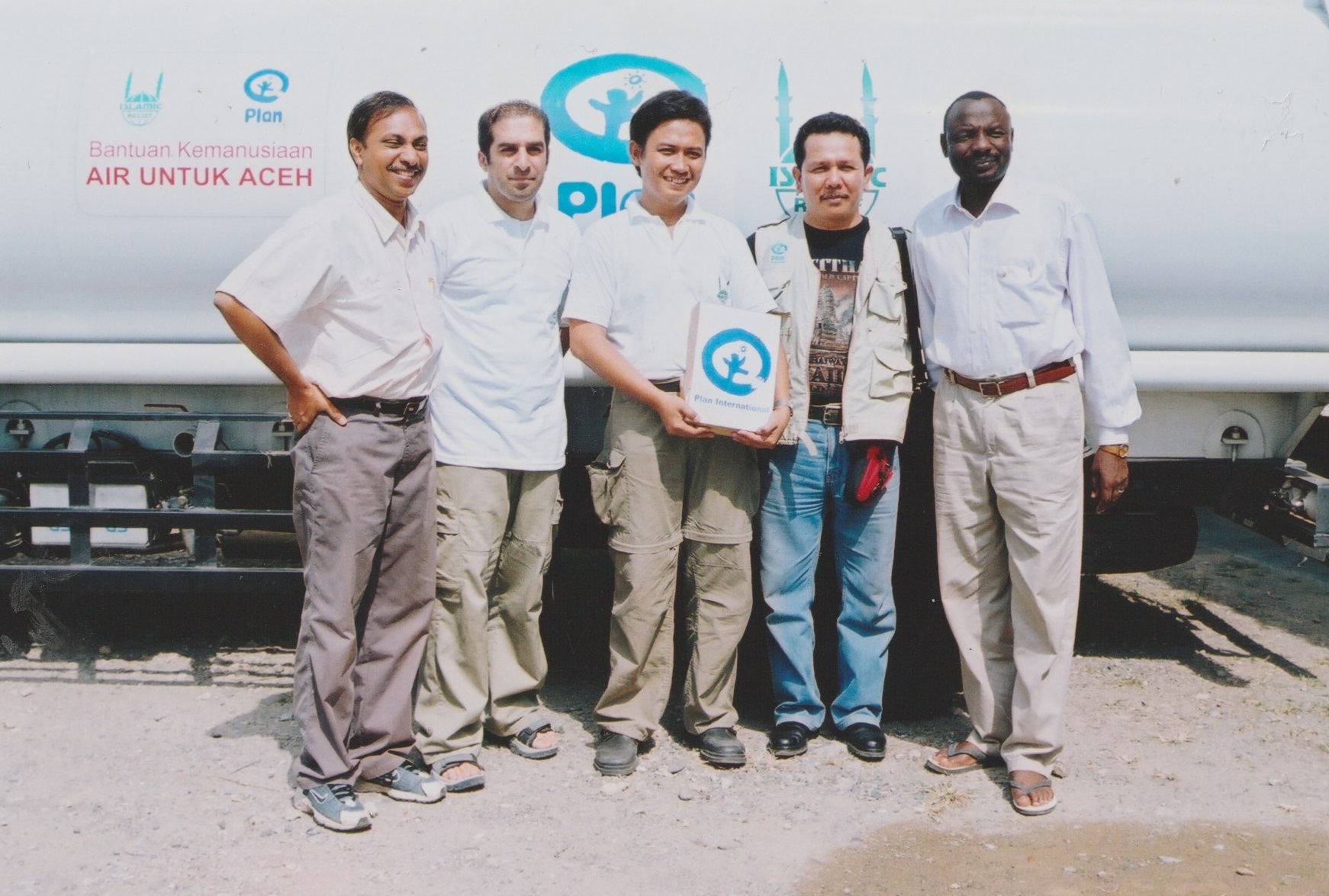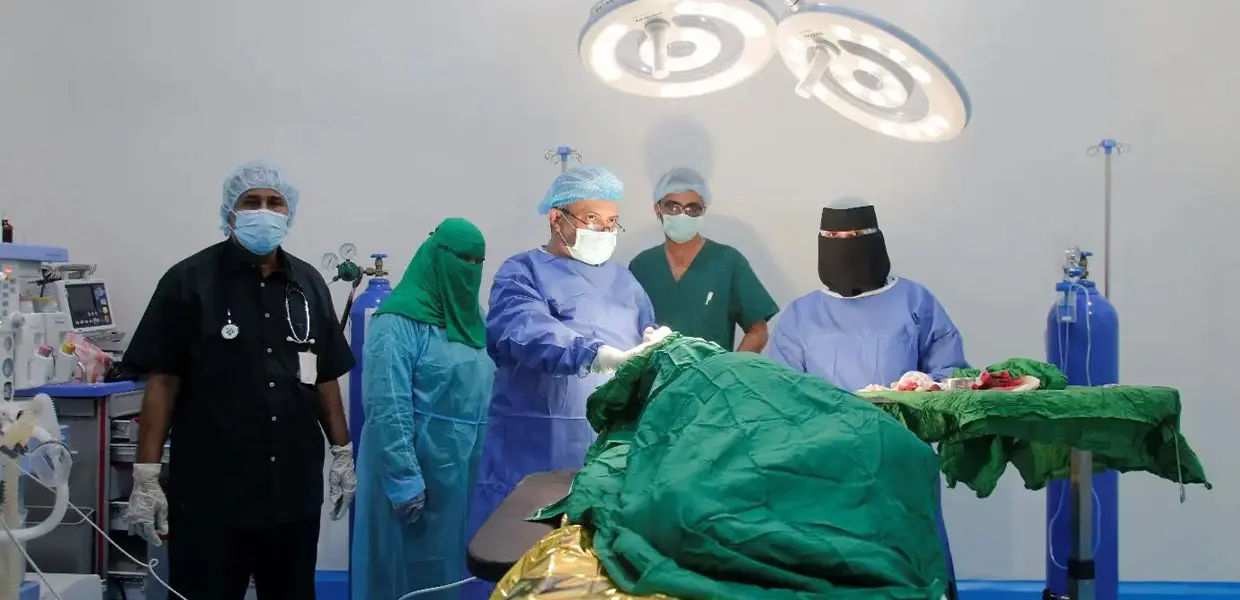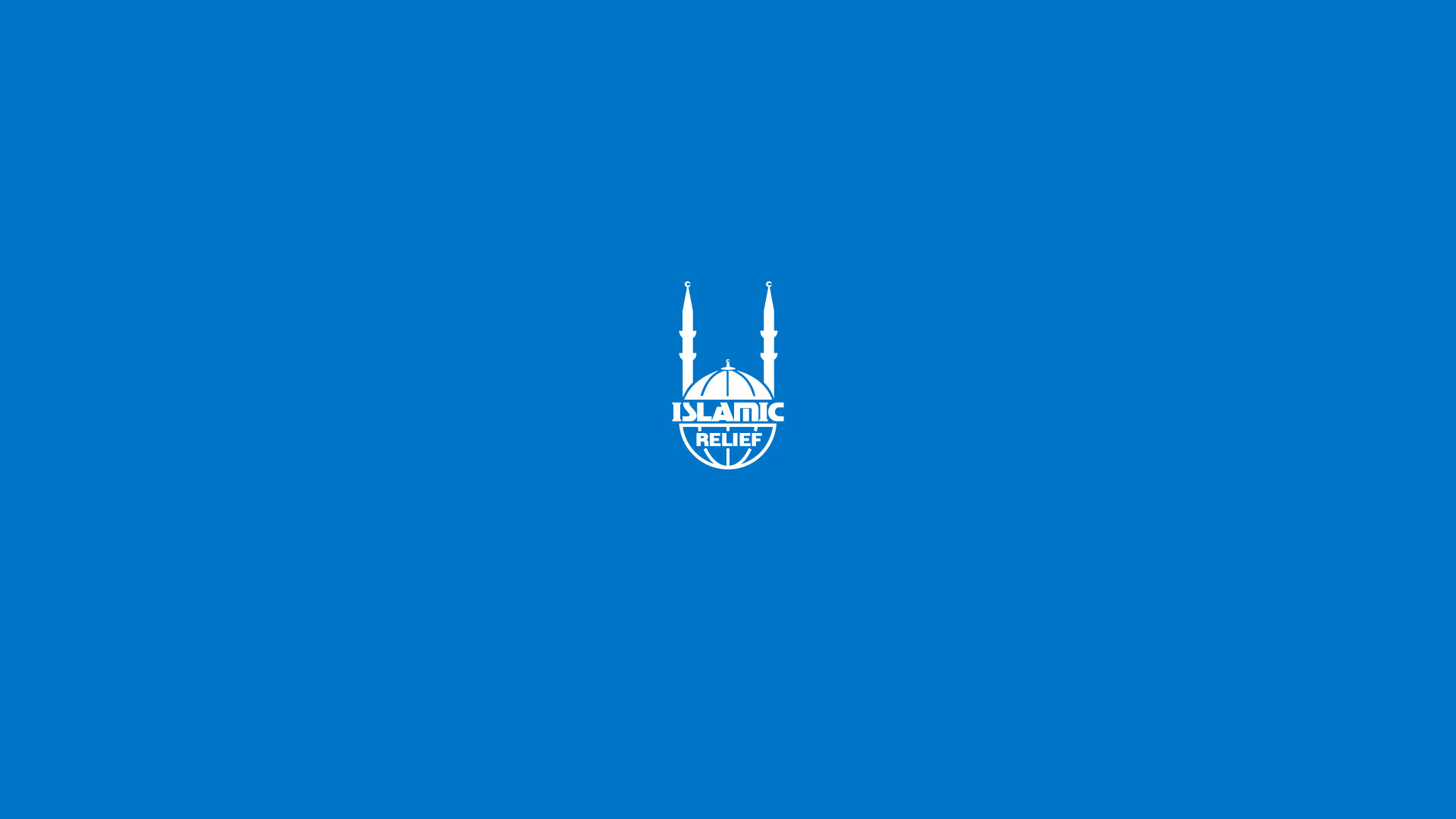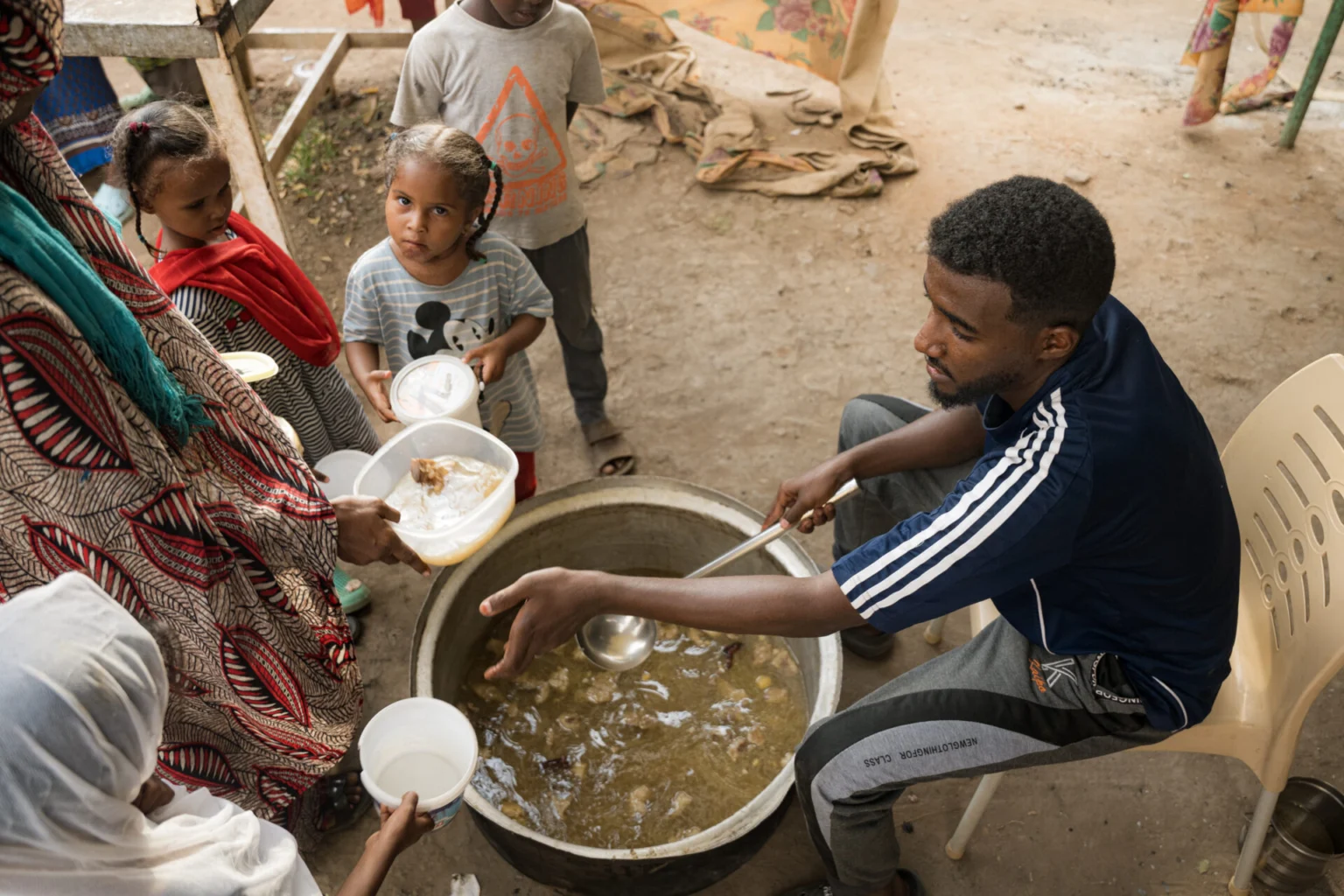20 years ago, Professor Ede Surya Darmawan was one of the first Islamic Relief staff to respond to disaster. To the enormous earthquake and tsunami that devastated communities around the Indian Ocean.
Here, Ede, now Chair of Islamic Relief Indonesia’s Board of Trustees and Professor in Public Health Development at Jakarta’s Universitas Indonesia, looks back on that time, following a recent trip to Banda Aceh, the worst-hit area.
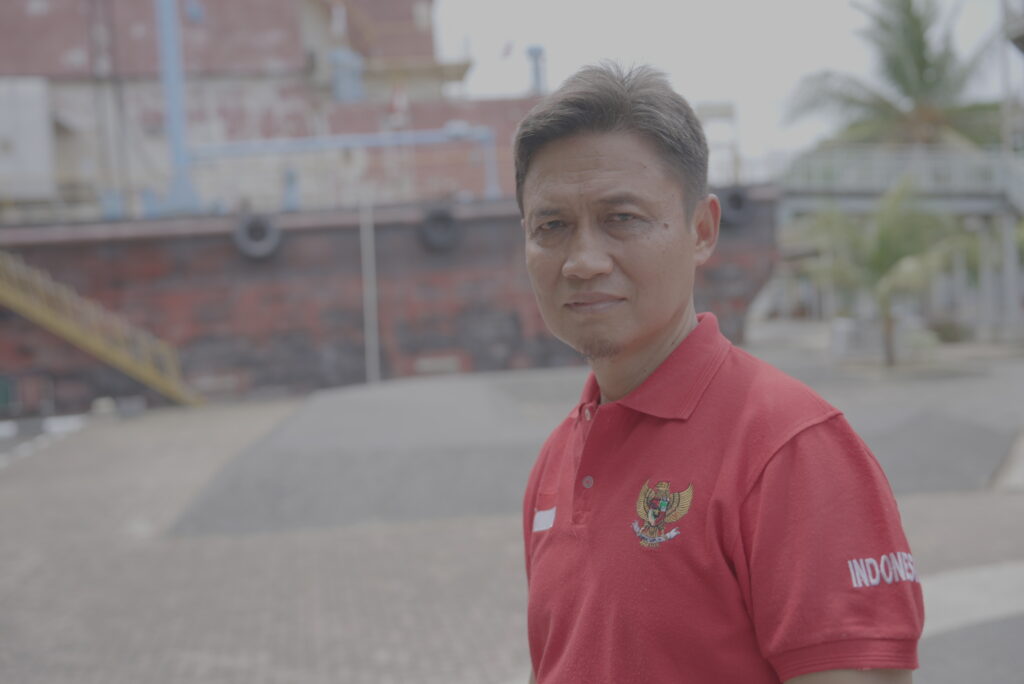
Visiting Banda Aceh 20 Years Later After the Tsunami and Earthquake
It was pitch black when I first set foot in Banda Aceh. This was on 2 January 2005, exactly one week after tsunami hit. The difficulty of the journey – a normally 3-hour trip from Jakarta, which ended up taking almost 24 – hinted at the chaos that had engulfed the city and the wider Aceh province. After it was struck by one of the worst natural disasters in history.
I’d seen the news footage of the aftermath of the massive earthquake and tsunami. But nothing could’ve prepared me for what I saw myself in the following days, weeks, and months.
When the sun rose the next day, I saw dead bodies everywhere. Islamic Relief’s office had been hastily set up in a partially-built house we’d managed to rent a few days earlier. It was just 200 metres from the area where victims’ bodies were being laid out for identification.
We went about our business, trying to support survivors however we could. All while surrounded by the harshest possible reminder of the loss this disaster had left behind.
I’d responded to disasters before. They are an inevitable part of life in Indonesia. We have earthquakes, volcanic eruptions, floods, landslides and, as we now know, tsunamis. As a young boy I grew up in the shadow of Galunggung Volcano, which had deadly eruptions in the 1800s and 1980s.
But I’d never seen anything like what happened in Aceh in 2004. No one had. The affected area looked as though it had been hit by a nuclear weapon.
News of the Disaster Trickles Out of Aceh
In 2004, Islamic Relief’s work in Indonesia was very small in scale compared to today. We had Ramadan and Qurban food distributions. As well as projects providing bags and books to schoolchildren.
But we didn’t work in Aceh at all. In fact, at that time, Aceh was a conflict zone. Where people from other parts of the country, as well as foreigners, were not allowed to enter.
Partly because of this, it took a while for information about the disaster to reach us in Jakarta. The earthquake happened at around 8am on December 26, but it was the afternoon before we heard about it. Around 2am the next morning, I got a call from Islamic Relief headquarters, which had more complete information. They said the disaster had been very large and that we’d need to quickly prepare to respond.
It was very challenging to get information from the ground in those first few days. Although we had no official links with Aceh, we had some local contacts there. But almost all of them had been affected by the disaster.
To find out what was going on, and how we could help, we sent our Programme Officer to Aceh immediately.
Starting from Scratch
Islamic Relief’s very early response involved providing food, water and first aid treatment – whatever we could – to try and address the massive needs of the affected people.
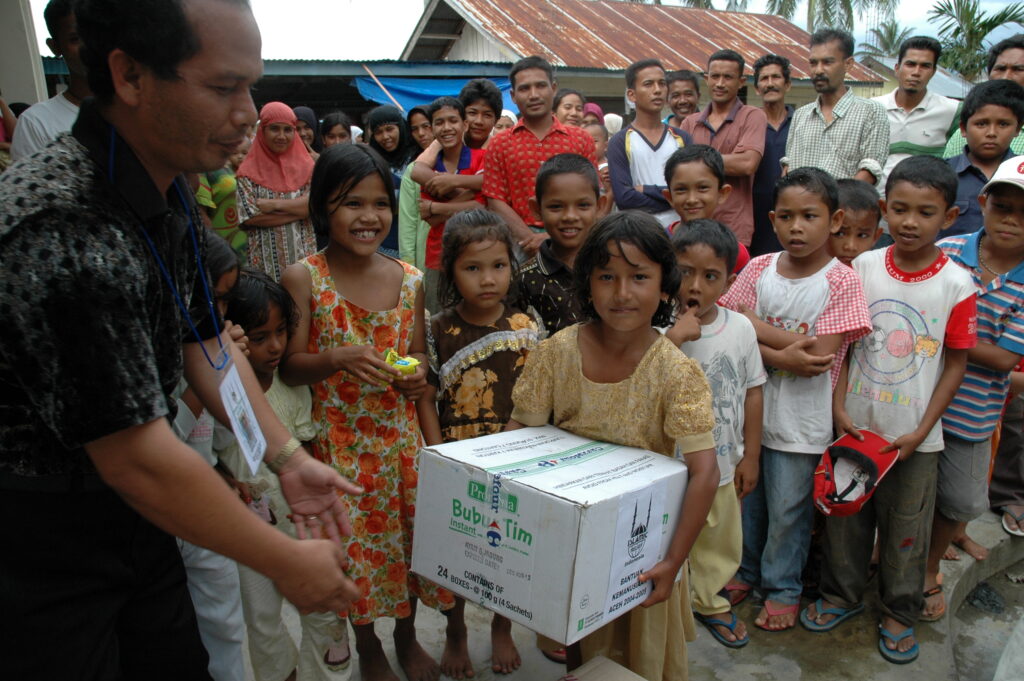
When I arrived, a week after the disaster, my first job was to set up a bank account. This ensured that the huge number of donations Islamic Relief was receiving could reach Aceh.
Then I began connecting with government and local authorities, other non-governmental organisations (NGOs) and United Nations bodies to see how we could work together to help those in need. There was so much collaboration between international, national and local groups, it seemed like every hour there was another meeting.
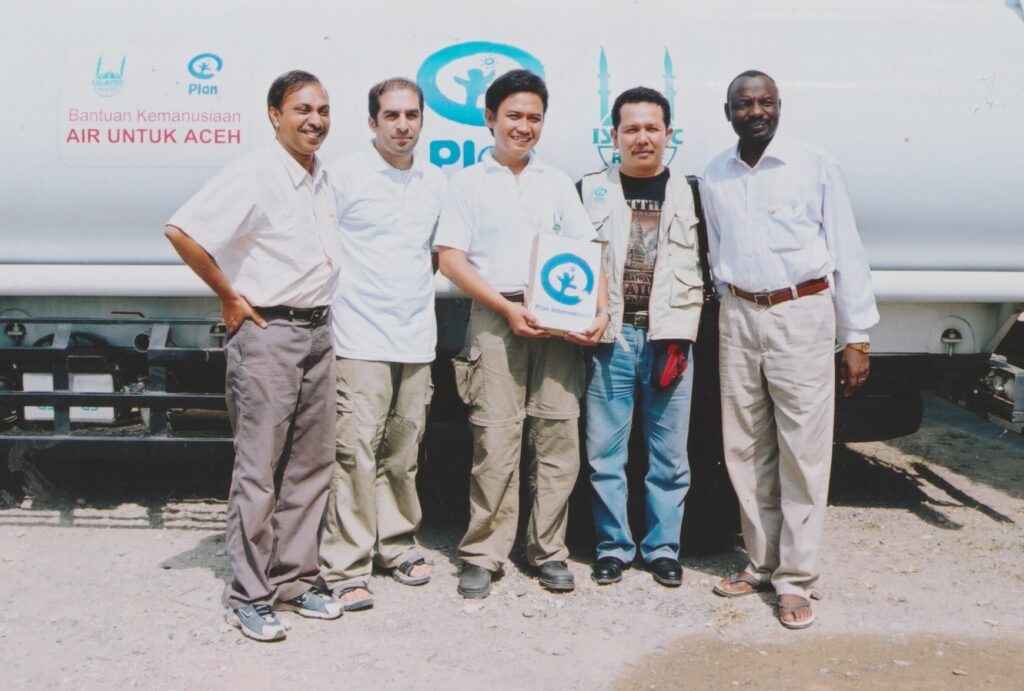
With banking resolved, there were still so many obstacles. The city had very nearly been wiped off the map. The electricity and water supplies had been damaged, so many roads and bridges were impassable. We had to buy supplies from the surrounding districts, particularly Medan, the capital of the neighbouring province. But it had been hit by a flood and supplies that should’ve taken 1-2 days to arrive ended up taking a week.
Recruiting people was another massive challenge. Almost everyone in Aceh was affected, so we had to recruit people from all over Indonesia, ensuring they had the skills we needed and were ready to travel to the disaster zone. The last question of every interview was: “If you accept this job today, tomorrow morning you will have to leave for Aceh. Are you ready or not?” If they said yes, we sent them and checked in 2 weeks later. If they were coping, they could stay. If not, they had to go home.
Uniting to Recover from the Tsunami and Earthquake
What people needed most in the early days was housing. Finding enough tents for temporary shelters was a big challenge. But, because there was a large military presence in Aceh from the conflict, we had support from the military and access to their supply of tents.
After those first overwhelming days and weeks, our response moved into addressing other needs in the affected communities.
We began running cash-for-work program, providing payment and meals to affected people who would in turn clear destroyed homes and roads. This was not only to give those who’d lost their livelihoods a way of earning some income, but also a means of beginning to address some of the psychological impacts of the disaster. By keeping people occupied, we hoped to distract them from feelings of hopelessness.
Slowly, things began to improve, and Aceh today is a completely different place. Before the tsunami, the region was completely alienated because of the conflict and after the disaster, it was completely devastated.
But so many people from all over the world – including from Islamic Relief – came to Aceh and we realised that we’re all the same and we must rebuild and overcome the impact of the tsunami together. Less than a year later, a peace treaty was signed and Indonesians tried to move forward together as one nation. This was the positive impact of the tsunami.
Returning to Aceh after the Tsunami and Earthquake
In August this year, I went back to Aceh and took Islamic Relief colleagues to the house that had once been our office.
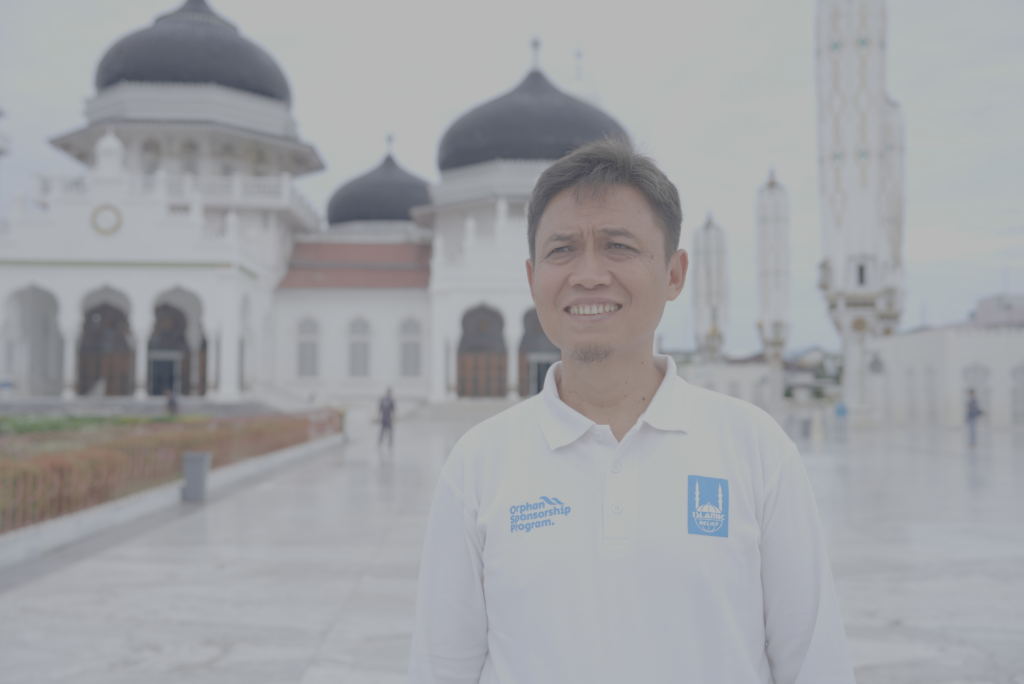
As we drove around the city, I pointed out where bodies had been. The mass graves that became their final resting place. The spot where the carcass of a dead cow had lain untouched for a month because everyone was so busy tending to survivors.
It’s odd, the things that have stuck with me after all this time.
It wasn’t my first time coming back to Aceh since the disaster. I’ve been before to see the programs Islamic Relief still runs in this province. But this time was particularly moving because the focus was on how Islamic Relief responded to the disaster and the legacy of our impact.
I had the chance to hear stories from survivors. The orphaned children who’d grown up to become teachers. The business owners and sources of inspiration in their communities as well as the government. The health officials who also told us their own personal stories while speaking about their areas of expertise.
I even got to hear the impressions of one colleague who was among the first people I recruited and sent to Aceh back in January 2005. He’s never left and is still there today delivering Islamic Relief’s programs.
A New Horizon
Many organisations grew up because of the tsunami and Islamic Relief is no different. It changed so much about our understanding of relief work and the possibilities that can come from organisations collaborating and helping one other.
At the time, it felt like a new horizon had opened up before us. We’d seen how humanity could work together to overcome many problems, including the disaster.
Now, Indonesia has laws and national bodies governing disaster responses, whether it’s a natural disaster or something like the COVID-19 pandemic. We’ve learned how essential preparation and collaboration at the national, provincial, and district levels are. Disasters can happen at any time, and we need to be prepared for them.
Doing what you can, whether it’s making a donation, or sharing your skills and knowledge to help others, brings us closer together as humans. Not only humanitarians, but everyone, can benefit from working together for the greater good.
20 years on from the earthquake and tsunami, Islamic Relief is sharing the stories of survivors, staff and our steadfast support of affected communities in the decades that followed the disaster. Please support Islamic Relief to continue supporting communities through disasters.
Be a lifeline. Give relief.
Help us to continue our vital work supporting those in desperate need of aid where disasters strike

